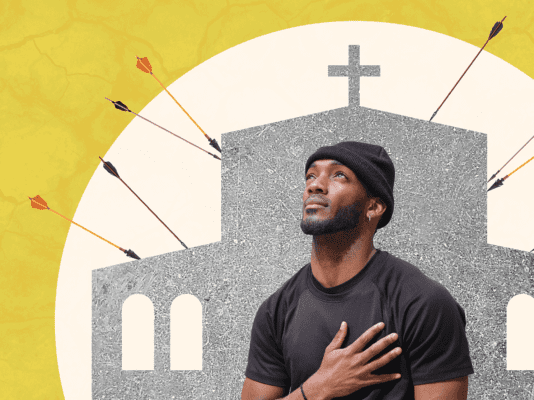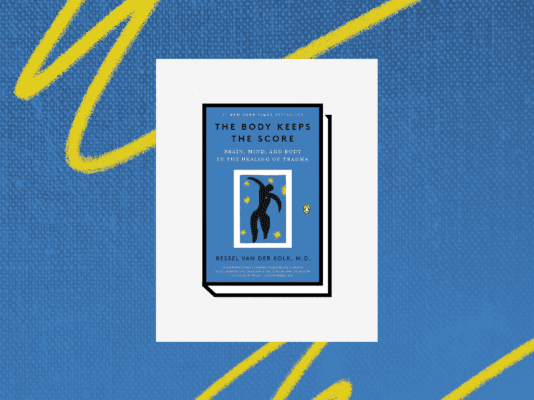We recently marked several months of being home with our son who was adopted from the tiny south African country of Lesotho. He is full of life and has a huge personality. He laughs uncontrollably sometimes at things around our house, like when we told him our dog was being a “pill” and the way his dad calls his sisters “chick-a-dee” and “sweet pea.” Watching him figure out how things work and seeing him do things that are very much African (you should see him eat an orange) makes our hearts smile. After having lived and worked as missionaries in Africa, we love having a little African son in our house.
While he has brought much joy and energy to our house, our short time as adoptive parents has brought on a number of other emotional responses—many of which we were unprepared for. Adoption has become a popular topic in Evangelical circles in recent years, and praise God for that. While there are many implications in Scripture that we take seriously, orphan care is an explicit expectation for the Christian, and it’s often been ignored by the church. Unfortunately, however, with the rise of popularity has come a parallel rise in romanticism regarding adoption. Like marriage, often portrayed in media as the meeting of two perfectly suited individuals who spend the rest of their days in wedded bliss, adoption can take on mythical proportions among some Christians, and if they are not careful, they can enter or support it without fully taking stock of how difficult it can be.
With as much joy and laughter as he’s provided us, our adoption has also been equally taxing on our family. We knew it would be tough. We knew the dynamics of our family would change. We knew there would be tears. No amount of preparation, though, could adequately ready us for the reality of bringing an independent, strong-willed, 10-year-old boy who has no framework for how a family works into our home. A recent devotion we read for adoptive families said,
Counting the cost in terms of adoption requires the disciple of Christ to recognize that children without families are not perfect children who simply need a home. They arrive with baggage. Ugly stuff. You will not be starting with a clean slate at Ground Zero. You will be climbing up to Ground Zero for a really long time . . . the bonding alone can be as taxing as building a 12-ft tower with toothpicks and a glue stick. It’s an all-embracing venture. It will be challenging emotionally, physically and spiritually.
Yes, yes and yes. Adoption is not for the faint of heart, and if we can be honest, our heart has been faint at times. We are grateful, moment by moment, for the grace of Jesus who holds us together, because there have been some really hard days. We are grateful for Christ and his Word, along with our friends and family. These have been our support system. Without it we cannot imagine undertaking adoption. With that said, and acknowledging that we are not far into our adoption story yet, here are a few things we have learned about the adoption process, both good and bad.
First, we had to radically restructure our entire family’s schedule. At the recommendation of the adoption therapist we saw at the international adoption clinic we use, we are taking everything very slowly with our son. We are used to keeping an extremely busy schedule, and we’ve had to scale way back. This doesn’t mean we don’t participate in anything, but we are being selective in the activities and places we go right now, for his sake.
This adjustment has been hard for our family. We’re doing our best to keep a highly structured and predictable environment for him at home. Consequently, as our adoption clinic reminds us, a “boring” life provides an immense amount of security and safety for him. Even the little bit of “going” we do tends to exhaust him, and he’s always ready to, as he says, “we go home.”
Second, we limit interaction with people outside of our immediate family. As strange as it can seem, adopted children can act outgoing and affectionate with strangers in a way that is not always healthy. The bonding process (him feeling “attached” to us as his parents) can be long—and perhaps even longer because he was an older child when he was adopted. For a typically outgoing family that is used to regularly having people in our home, this has been a tough transition.
These limitations can have a difficult effect on friends and family who may struggle to understand. Our son has had birthday invitations, play date invites and so on. We’re anxious for him to get to do these things, but for right now, he’s still trying to figure out how to function in a family. Keeping him in a familiar environment is what’s best for him. We regularly say “no,” which is hard, but important for his (and our) adjustment.
Third, communication is a primary challenge. He is learning English more and more every day. When he is safely at home with our family, it can seem like he can say quite a bit, and he can and does talk quite a lot. However, while he understands a good bit more English than he can speak, he doesn’t have the ability yet to quickly process and provide answers. Many questions at a time overwhelm him, and we Americans are good at asking 20 questions at a time. This communication barrier can create frustrations and challenges when we are in social situations. What’s more, the emotional and mental strain on him as he tries to communicate, and on us as we try to understand and interpret, is no small thing.
Make no mistake, we don’t adopt because it’s hard or good. We adopt because it matters.
Fourth, discipline can leave parents overwhelmed and unsure. Finding a pattern of discipline is a significant challenge. Like every child, he will occasionally need correction. Due to difficulty and trauma in his past, that discipline has to be provided in a careful, loving context. What’s more, his response can often be equally challenging. Our son, in particular, will pretend to be “asleep” (which seems to be his coping mechanism when he is stressed, frustrated or overwhelmed). Providing correction that he understands, that is loving and that helps him understand what needs to change, while affirming his place in the family and that our love cannot be changed by his behavior, is a unique and stress-inducing responsibility.
Adoption is the hardest thing we have ever done. It’s tougher than living in the bush of Africa with no electricity and running water in 100+ degree weather or following God to 13 different addresses in 16 years of marriage. Adoption is hard. But the Lord is good, and he continues to teach and reveal more of himself to us through this child who sometimes doesn’t want to be loved by us, who may resist our kisses, attempts at hugs or wanting to put our arm around him. How much more does God love us when we resist him? There’s so much of the gospel in adoption, and we want to live it out well.
As hard as adoption is, it’s just as good. It is amazing when our son leans up against us, slips his arm through ours and lets us hug him. Or when he prays at the dinner table, in his newly-learned English. Or when he and his sisters laugh uncontrollably as they play together. But make no mistake, we don’t adopt because it’s hard or good. We adopt because it matters. We adopt because we have been adopted. We adopt because a little boy did not have a family, and now he does. As we adopt, there are good days and, at least early on, there are many, many difficult days, but we are encouraged by Christ, his Word and our church community. And that is enough—even (and especially) when we don’t know what to expect.
Learn from Micah and Tracy Fries and other speakers at the fourth annual ERLC National Conference on "Parenting: Christ-Centered Parenting in a Complex World" on August 24-26, 2017, in Nashville, Tenn.










